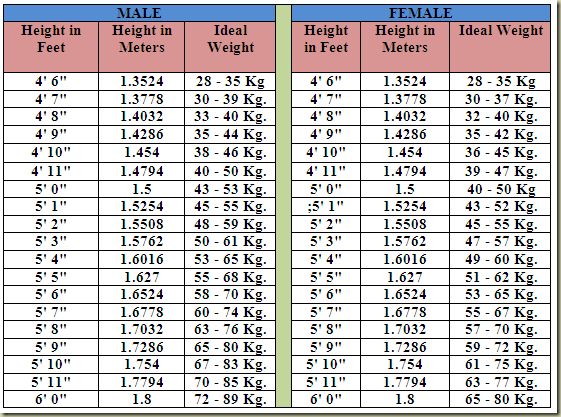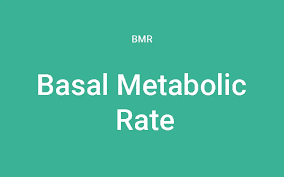Are you trying to determine your ideal body weight? Look no further than an ideal body weight calculator! Whether you’re a male or female, an ideal body weight calculator can help you determine your ideal weight range based on factors such as age, height, and body composition.Using an ideal body weight calculator male or ideal body weight calculator female can be used to help you for your ideal weight as per your height.
Ideal Weight Calculator
The ideal weight based on popular formulas:
| Formula | Ideal Weight |
|---|
[ez-toc]
What is Ideal Body Weight?
Ideal body weight (IBW) is a term often used to describe the optimal weight range for an individual, taking into consideration factors such as height, age, gender, and body composition. Achieving and maintaining your ideal body weight can lead to a plethora of health benefits, including reduced risks of chronic diseases, improved fitness levels, and enhanced overall well-being. In this article, we’ll explore the concept of ideal body weight and the various methods you can use to calculate yours.
Why is Ideal Body Weight Important?
Understanding your ideal body weight can help you make informed decisions about your lifestyle choices, such as setting realistic fitness goals, developing a balanced diet, and assessing your overall health. Some of the benefits of reaching and maintaining your ideal body weight include:
Reduced risk of chronic diseases: Obesity has been linked to an increased risk of developing chronic health conditions such as heart disease, diabetes, and certain types of cancer. By maintaining a healthy weight, you can lower your risk of these conditions.
Improved energy levels: Carrying excess weight can make everyday tasks more difficult and tiring. Achieving your ideal body weight can help you feel more energetic throughout the day.
Enhanced self-confidence: Reaching your ideal body weight can boost your self-esteem and body image, leading to an overall improvement in your mental and emotional well-being.

Formulas for Ideal Body Weight- How much should I weight?
Understanding your ideal body weight (IBW) can help you set achievable health and fitness goals, develop a balanced diet, and assess your overall well-being. Several formulas can be used to calculate ideal body weight, each with its unique benefits and limitations. In this article, we’ll explore five popular methods and how to apply them to determine your ideal body weight.
Our advanced Ideal Body Weight calculator employs a diverse set of six distinct formulae to determine your ideal weight and provides you with your Body Mass Index (BMI). Unlike the simpler formulae that offer a single target weight, BMI offers a range within which your weight should ideally fall.
For male individuals, our calculator employs the following formulae:
- Robinson Formula: 52 kg + 1.9 kg for every inch over 5 feet.
- Miller Formula: 56.2 kg + 1.41 kg for every inch over 5 feet.
- Hamwi Formula: 48.0 kg + 2.7 kg for every inch over 5 feet.
- Devine Formula: 50.0 kg + 2.3 kg for every inch over 5 feet.
- Broca Formula: height [cm] – 100.
- Lorentz Formula: (height [cm] – 100) – (height [cm] – 150)/4.
For female individuals, our calculator applies the following formulae:
- Robinson Formula: 49 kg + 1.7 kg for every inch over 5 feet.
- Miller Formula: 53.1 kg + 1.36 kg for every inch over 5 feet.
- Hamwi Formula: 45.5 kg + 2.2 kg for every inch over 5 feet.
- Devine Formula: 45.5 kg + 2.3 kg for every inch over 5 feet.
- Broca Formula: height [cm] – 100.
- Lorentz Formula: (height [cm] – 100) – (height [cm] – 150)/2.
Among these formulae, the Devine formula stands out as the most medically validated. Robinson’s and Miller’s formulae are often considered as variations of the Devine formula.
In addition to these six formulae, our calculator also provides your ideal weight according to the Peterson formula, which is based on your target BMI:
- Peterson Formula: (2.2 × target BMI) + (3.5 × target BMI × (height [m] – 1.5)).
It’s important to note that the Peterson formula is gender-independent. By default, our calculator uses a target BMI of 22, but you have the flexibility to adjust this value by accessing the advanced mode and modifying it as needed.
Height-Weight Chart and BMI: Understanding Healthy Body Weight
A height-weight chart, also known as a BMI (Body Mass Index) chart, is a valuable tool for assessing whether an individual’s weight falls within a healthy range relative to their height. It serves as a basic guideline to help people gauge their overall health and risk of certain diseases related to weight.
Height-Weight Chart
A height-weight chart typically consists of a grid with rows representing various heights and columns indicating different weight ranges. By locating their height on the chart, individuals can find the corresponding weight range that is considered healthy for their body frame. These charts are commonly used by healthcare professionals, dietitians, and individuals interested in monitoring their weight.
It’s important to note that height-weight charts provide general recommendations and do not consider factors like body composition (muscle vs. fat), age, gender, or specific health conditions. Therefore, while they offer a rough estimate, they are not comprehensive in assessing overall health.

Which Factors Affect The Ideal Weight?
Ideal weight is a crucial aspect of achieving and maintaining optimal health. However, determining your ideal weight is not a one-size-fits-all approach, as several factors can influence it. In this article, we will delve into the most important factors that can affect ideal weight, empowering you to make informed decisions about your health and wellness.
Age
As you age, your metabolism slows down, muscle mass decreases, and body fat tends to increase. These changes can lead to a shift in your ideal weight. It is essential to consider your age when determining your ideal weight and adjusting your fitness goals and nutritional requirements accordingly.
Gender
Men and women tend to have different body compositions, with men generally having a higher percentage of muscle mass and women having a higher percentage of body fat. As a result, ideal weight can vary between genders, even if they share the same height and age.
Genetics
Your genetic makeup can play a significant role in determining your body shape, size, and predisposition to gain or lose weight. By understanding your family history and genetic background, you can gain insight into your unique ideal weight and tailor your health and fitness goals accordingly.
Body Composition
Body composition refers to the proportion of muscle, fat, bone, and water in your body. Two individuals with the same height and weight can have vastly different body compositions, resulting in different ideal weights. Considering your body composition when determining your ideal weight allows for a more accurate and personalized approach to your health and fitness journey.
Activity Level
Your daily activity level and exercise routine can significantly impact your ideal weight. Active individuals and athletes may require a higher weight to support their muscle mass and optimize their performance. It is crucial to consider your activity level when determining your ideal weight to ensure you are fueling your body adequately.
Health Conditions
Certain health conditions, such as thyroid disorders or hormonal imbalances, can affect your body’s ability to regulate weight. If you have a health condition that influences your weight, it is essential to work closely with your healthcare provider to determine your ideal weight and develop a plan to manage your condition effectively.
Lifestyle and Personal Goals
Your lifestyle choices and personal health goals can also impact your ideal weight. For example, if your primary goal is to build muscle, your ideal weight may be higher than someone with a focus on endurance training or weight loss. Considering your personal goals and preferences when determining your ideal weight can help you stay motivated and achieve success on your health journey.
Understanding the factors that influence your ideal weight is an essential step in taking control of your health and well-being. By considering your age, gender, genetics, body composition, activity level, health conditions, and personal goals, you can gain a more comprehensive understanding of your unique ideal weight and develop a tailored plan to achieve and maintain it. Remember, the journey to optimal health is an individual one—embrace your unique path and enjoy the journey.
Ideal Body Weight Calculator for Males and Females
How to Use an Ideal Body Weight Calculator for Females
Using an ideal body weight calculator for females can help you determine your ideal weight range based on several factors such as age, height, and body composition. Here are the steps to use an ideal body weight calculator for females:
Choose an Ideal Body Weight Calculator: There are several ideal body weight calculators available online, such as the BMI Calculator and Ideal Weight Calculator.
Enter Your Information: Enter your age, height, and weight into the calculator.
Receive Your Results: The calculator will provide your ideal weight range based on your age, height, and body composition.
How to Use an Ideal Body Weight Calculator for Males
Using an ideal body weight calculator for males works the same way as for females. Here are the steps to use an ideal body weight calculator for males:
Choose an Ideal Body Weight Calculator: Choose an ideal body weight calculator that is designed for males, such as the BMI Calculator and Ideal Weight Calculator.
Enter Your Information: Enter your age, height, and weight into the calculator.
Receive Your Results: The calculator will provide your ideal weight range based on your age, height, and body composition.
Limitations of Ideal Body Weight Calculator
Accuracy:
- The Ideal Body Weight (IBW) Calculator is widely used but lacks precision.
- It relies on simplistic formulas and may not accurately represent an individual’s ideal weight.
Body Composition:
- The calculator does not differentiate between muscle, fat, and bone mass.
- It provides a one-size-fits-all approach, disregarding variations in body composition.
Individual Variability:
- Unique factors like genetics, metabolism, and health conditions aren’t considered.
- People have different ideal weights based on these factors, which the calculator doesn’t account for.
Lifestyle and Activity Levels:
- Assumes a sedentary lifestyle when estimating ideal weight.
- Active individuals or athletes may have different weight requirements due to increased muscle mass and energy expenditure.
Age and Gender Bias:
- Incorporating age and gender can introduce biases and reinforce stereotypes.
- These factors may not be directly related to a person’s health or ideal weight.
Neglecting Comprehensive Health:
- Overemphasis on ideal weight can divert attention from overall health, nutrition, and fitness.
- A holistic approach to health should consider more than just the number on a scale.
Psychosocial Impact:
- Pursuit of an “ideal” weight can lead to body image issues, eating disorders, and psychological stress.
- These psychological impacts are significant concerns.
Cultural Considerations:
- The concept of ideal body weight varies across cultures and regions.
- What’s deemed “ideal” may not align with cultural norms, highlighting the need for sensitivity.
Changes Over Time:
- Ideal body weight can change with age, lifestyle changes, and health conditions.
- Relying on a static number may not account for these fluctuations.
Medical Conditions:
- Certain medical conditions like thyroid disorders or hormonal imbalances can significantly affect a person’s weight.
- These conditions make the concept of ideal body weight less applicable.
Our advanced Ideal Body Weight calculator employs a diverse set of six distinct formulae to determine your ideal weight and provides you with your Body Mass Index (BMI). Unlike the simpler formulae that offer a single target weight, BMI offers a range within which your weight should ideally fall.
Frequently Asked Questions (FAQ) on Ideal Body Weight
1. What is Ideal Body Weight (IBW)?
Ideal Body Weight (IBW) is a concept that suggests a weight range considered healthy or optimal for an individual’s height, gender, and sometimes age. It serves as a general guideline for assessing whether a person’s weight falls within a healthy range.
2. How is Ideal Body Weight calculated?
IBW can be calculated using various formulae, such as the Robinson formula, Miller formula, Hamwi formula, Devine formula, Broca formula, and Lorentz formula. These formulae use height as the primary determinant, with some incorporating gender-specific calculations.
3. Are Ideal Body Weight calculators accurate?
Ideal Body Weight calculators provide rough estimates based on height and, in some cases, gender or age. However, they have limitations and do not consider factors like body composition, muscle mass, bone density, and individual variations. Therefore, their accuracy is limited.
4. What’s the significance of knowing my Ideal Body Weight?
Knowing your Ideal Body Weight can serve as a general reference point for assessing whether your weight is within a healthy range. It can be a starting point for discussions with healthcare professionals and for setting weight-related health goals.
5. Is Ideal Body Weight the same as a healthy weight?
Ideal Body Weight is a simplified concept that provides a target weight range. A healthy weight takes into account a person’s overall health, body composition, lifestyle, and individual factors. It is a broader and more comprehensive assessment of well-being.
6. Can I rely solely on Ideal Body Weight to assess my health?
No, it is not advisable to rely solely on Ideal Body Weight for assessing your health. It is essential to consider other factors like body composition, fitness level, nutrition, and overall well-being. Consultation with a healthcare professional is recommended for a comprehensive evaluation.
7. What are the limitations of Ideal Body Weight calculators?
The limitations of Ideal Body Weight calculators include their failure to account for body composition, muscle mass, bone density, lifestyle, genetics, and health conditions. They provide a simplistic view of weight-related health.
8. Is there an ideal weight for everyone of the same height and gender?
Not necessarily. Even individuals of the same height and gender can have different ideal weights based on factors like genetics, muscle mass, and overall health. Ideal Body Weight calculators offer general guidelines but may not apply universally.
9. Can I use Ideal Body Weight as a weight loss or fitness goal?
While Ideal Body Weight can serve as a starting point for setting weight-related goals, it should not be the sole focus. It’s important to consider other factors like muscle gain, overall health, and sustainable lifestyle changes when setting fitness and weight loss goals.
10. Where can I find an Ideal Body Weight calculator?
You can find Ideal Body Weight calculators online, often on health and fitness websites. It’s advisable to use them as a reference but not as the sole determinant of your health or fitness goals. Consultation with a healthcare professional can provide more personalized guidance.
Conclusion
Using an ideal body weight calculator for males and females can help you determine your ideal weight range quickly and easily. By taking into account factors such as age, height, and body composition, you can set realistic health and fitness goals and achieve and maintain optimal health and wellness. Remember, the journey to optimal health is an individual one can embrace your unique path and enjoy.the journey.





